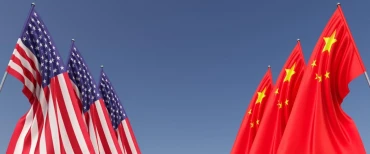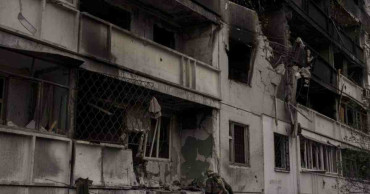Antony Blinken
Blinken to visit Mideast for talks amid regional tensions
US Secretary of State Antony Blinken is set to embark on his 12th trip to the Middle East since the onset of the Israel-Hamas conflict last year.
This visit marks his first since Syrian President Bashar Assad’s recent departure to Russia, an event that has heightened regional uncertainty.
Blinken’s two-day itinerary will include stops in Jordan and Turkey, with discussions centered on Syria and broader efforts to end the Gaza conflict that has ravaged the Palestinian territory since October 2023.
According to the State Department, Blinken will meet Jordanian leaders, including King Abdullah II, in Aqaba on Thursday before heading to Ankara for talks with Turkish officials on Friday. Additional regional visits remain a possibility.
The Biden administration is intensifying its diplomatic engagement in the Middle East as it navigates complex crises during its final weeks in office.
President-elect Donald Trump has stated that the US should avoid entanglement in Syria, while the Biden administration continues to conduct airstrikes and maintain a military presence to prevent an Islamic State resurgence amid Syria’s ongoing turmoil.
State Department spokesperson Matthew Miller emphasized that Blinken’s visit aims to reaffirm US support for a Syrian-led transition to a representative and accountable government.
Discussions will address minority rights, humanitarian aid delivery, terrorism prevention, and the elimination of Syria’s chemical weapons stockpiles.
US warns Russia may use new lethal missile against Ukraine soon
Blinken has signaled US willingness to back a new Syrian government meeting these conditions. While American officials maintain the foreign terrorist organization designation of Hayat Tahrir al-Sham (HTS), once linked to al-Qaida, they have not ruled out dialogue with its members.
Ahead of his trip, Blinken spoke with the foreign ministers of Egypt, Jordan, Qatar and the UAE to reinforce US positions on Syria and stress the urgency of a Gaza ceasefire. The US continues to push for the release of hostages taken by Hamas and a framework for post-war governance, security, and reconstruction in Gaza.
Blinken’s visit follows Syrian President Assad’s flight to Russia over the weekend. Meanwhile, other senior US officials, including National Security Adviser Jake Sullivan and Army Gen Erik Kurilla are engaging with leaders across the region.
Trump’s designated Middle East envoy, Stephen Witkoff, is also active in the region as the US prepares for a presidential transition.
Source: With inputs from wires
1 year ago
US announces visa restrictions on Chinese officials over ‘forcible assimilation’ of Tibetan children
The United States has announced visa restrictions on Chinese officials for their alleged involvement in “forcible assimilation of more than one million Tibetan children” in government-run boarding schools.
The US state department made the announcement on Tuesday without providing any details or naming any officials.
Also read: China says PM Hasina's remarks against sanctions reflect a ‘large part of int'l community's mind’
“These coercive policies (forcible assimilation) seek to eliminate Tibet’s distinct linguistic, cultural, and religious traditions among younger generations of Tibetans,” US Secretary of State Antony Blinken said in a statement.
Also read: BRICS Summit 2023 unveils potential geopolitical paradigm shift: Modern Diplomacy
He urged the Chinese government to cease “repressive assimilation policies”, both in Tibet and other parts of the country.
“We will continue to work with our allies and partners to highlight these actions and promote accountability,” Secretary of State Blinken said.
2 years ago
Xi meets Blinken in Beijing
Chinese President Xi Jinping met with U.S. Secretary of State Antony Blinken at the Great Hall of the People on Monday.
Xi said that Wang Yi, director of the Office of the Foreign Affairs Commission of the Communist Party of China Central Committee, and Chinese State Councilor and Foreign Minister Qin Gang described their talks with Secretary Blinken as candid and in-depth.
Also Read: Blinken to meet Xi, State Department says, in bid to ease US-China tensions
"The Chinese side has made its position clear, and the two sides have agreed to follow through on the common understandings President Biden and I reached in Bali," said Xi, adding that the two sides also made progress and reached agreement on some specific issues.
Also Read: Blinken opens second day of talks in Beijing on mission to ease soaring US-China tensions
State-to-state interactions should always be based on mutual respect and sincerity, said Xi. "I hope that Secretary Blinken, through this visit, could make positive contributions to stabilizing China-U.S. relations."
Also Read: Blinken opens second day of talks in Beijing on mission to ease soaring US-China tensions
2 years ago
Dangling threat of visa sanctions in Bangladesh’s case, US silent on undeclared martial law situation in Pakistan: Geostrategist Chellaney
US Secretary of State Antony Blinken's announcement to withhold visas from individuals "responsible for, or complicit in, undermining the democratic election process" in Bangladesh is hardly conducive to the promotion of this aim, says Professor Emeritus of Strategic Studies at the Center for Policy Research in New Delhi, Brahma Chellaney.
"If anything, it is likely to prove counterproductive," he wrote in an article published by Nikkei Asia on Monday.
Also read: New US visa policy declared targeting next Bangladesh polls
Chellaney is a former adviser to India's National Security Council, and has authored nine books, including "Water: Asia's New Battleground".
US President Joe Biden’s administration “has made Bangladesh a focus of its democracy promotion efforts by dangling the threat of visa sanctions against officials who undermine free elections while staying silent on the undeclared martial law situation in Pakistan, where mass arrests, disappearances and torture have become political weapons,” writes the professor.
Also read: US govt’s new visa policy does not bother Bangladesh government: Shahriar Alam
"The short answer is that US promotion of democratic rights has long been selective, with geopolitical considerations often dominant. The pursuit of moral legitimacy for the cause of democracy promotion has also contributed to making sanctions the tool of choice for US policymakers," Prof Chellaney says.
In the case of Bangladesh, he thinks, the Biden administration is seeking to leverage two other factors: that close relatives of many Bangladeshi politicians live in the US or Britain, including Prime Minister Sheikh Hasina's son who holds an American green card; and that the bulk of Bangladesh's exports go to the West, with the US being the top destination.
Also read: Bangladesh expects new US visa policy will not be applied arbitrarily in non-objective manner
"In fact, bullying the world's seventh-most populous country, far from helping to promote a free and fair election, is more likely to revive painful memories of how the US looked the other way in 1971 as the Pakistani military brutally resisted Bangladesh's efforts to achieve independence from Islamabad, slaughtering up to 3 million people. What is Washington really after now?" — the professor questions.
Bangladesh's impressive growth trajectory stands in stark contrast to the chronic political and economic turmoil seen in Pakistan, which today is teetering on the brink of default. Yet while Bangladesh was excluded from the Summits for Democracy convened in 2021 and earlier this year by Biden, Pakistan was invited both times though it did not attend either, the article reads.
Also read: US eyeing enhanced cooperation with Bangladesh in security and trade
While continuing to reward Pakistan by prioritizing short-term geopolitical considerations, the Biden administration has been criticizing democratic backsliding in Bangladesh.
Blinken's wielding of the “visa-sanctions stick” is clearly aimed at members of PM Hasina's government, including law enforcement and other security officials, although the announcement of the new policy also mentioned members of opposition parties, Prof Chellaney writes.
Also read: US consistent on the need for free, fair election in Bangladesh: White House
"But sanctioning foreign officials usually serves no more than a symbolic purpose while hampering diplomacy. It can also have unintended consequences," he adds.
The professor observed that the new hardline towards Dhaka makes little sense. "The Hasina government could be a significant partner in the US war on terror and in improving Asian security. Instead, bilateral relations are under strain. No one from the Biden administration even met with Hasina when she visited Washington last month for discussions with the World Bank and International Monetary Fund."
"While in Singapore this month, (US Defense Secretary Lloyd) Austin declared that America ‘will not flinch in the face of bullying or coercion’ from China. But bullying and coercion are also unlikely to advance US interests in Bangladesh," the article reads.
Also read: Exaggeration, inconsistency in Congressmen’s letter: Shahriar Alam
2 years ago
Blinken warns Central Asia of dangers from war in Ukraine
The Biden administration on Tuesday pledged to support the independence of the five Central Asian nations, in a not-so-subtle warning to the former Soviet states that Russia’s value as a partner has been badly compromised by its year-old war against Ukraine.
In Kazakhstan for meetings with top Central Asian diplomats, U.S. Secretary of State Antony Blinken said no country, particularly those that have traditionally been in Moscow’s orbit, can afford to ignore the threats posed by Russian aggression to not only their territory but to the international rules-based order and the global economy. In all of his discussions, Blinken stressed the importance of respect for “sovereignty, territorial integrity and independence.”
The Central Asian states have hewed to a studied position of neutrality on Ukraine, neither supporting Russia’s invasion nor U.S. and Western condemnations of the war.
“Ever since being the first nation to recognize Kazakhstan in December of 1991, the United States has been firmly committed to the sovereignty, territorial integrity and independence of Kazakhstan and countries across the region,” Blinken said after meeting in Astana with the foreign ministers of the so-called C5+1 group, made up of the U.S. and Kazakhstan, Kyrgyzstan, Tajikistan, Turkmenistan and Uzbekistan.
Also Read: Blinken tours Turkey’s earthquake zone, pledges $100M in aid
“In our discussions today, I reaffirmed the United States’ unwavering support for Kazakhstan, like all nations, to freely determine its future, especially as we mark one year since Russia lost its full-scale invasion of Ukraine in a failed attempt to deny its people that very freedom,” Blinken told reporters at a news conference with Kazakh Foreign Minister Mukhtar Tileuberdi.
Tileuberdi thanked Blinken for the U.S. commitment to Kazakhstan’s freedom, but signaled that his country was unlikely to adopt either a pro-Russian or pro-Western position. Tileuberdi said Kazakhstan would continue to act in its own national interest given “the complex international situation.”
“Our country continues a balanced multilateral foreign policy,” he said.
Tileuberdi noted that while Kazakhstan has very close and historic ties with both Russia and Ukraine, it would not allow its territory to be used for any Russian aggression or sanctions evasion. He added that even though Kazakhstan shares the world’s longest land border with Russia, it did not see a threat from Moscow.
Blinken also held separate meetings in Astana with the foreign ministers of Kyrgyzstan, Tajiistan and Turkmenistan. After visiting Kazakhstan, Blinken arrived in Tashkent, the capital of Uzbekistan, on his first trip to Central Asia as secretary of state.
None of the five former Soviet republics in Central Asia, traditionally viewed as part of the Kremlin’s sphere of influence, publicly backed the Russian invasion. Kazakhstan welcomed tens of thousands of Russians fleeing from the military call-up last fall. Kazakh President Kassym-Jomart Tokayev has spoken by phone with Ukrainian President Volodymyr Zelenskyy three times since Russian troops rolled into Ukraine last February, calling for a diplomatic resolution of the conflict in accordance with the U.N. charter and international law.
However, all five Central Asian republics, along with India, which Blinken will visit next after Uzbekistan, abstained in a vote to condemn the invasion as a violation of core international principles last week at the U.N. General Assembly, on the first anniversary of the war.
“If we allow (those principles) to be violated with impunity, that does open the prospect that Russia itself will continue to consider further aggression against other countries, if it sets its sights on them, or other countries will learn the wrong lesson and would-be aggressors in every part of the world will say ’well, if Russia can get away with this, then we can too,’” Blinken said. “That’s a recipe for a world of conflict, a world of instability, a world that I don’t think any of us want to live in.”
“So, that’s why it’s been so important for so many countries to stand up and say, no we don’t accept this,” he said.
The U.S. has for decades sought — without great success — to wean the former Soviet nations of the region from Moscow’s influence. Some, notably Uzbekistan and Tajikistan, assisted the U.S. logistically during its 20-year conflict in Afghanistan, but their ties to Russia remain deep and extend to the economic, military and diplomatic spheres as members of the Commonwealth of Independent States, a Moscow-dominated grouping of ex-Soviet nations.
3 years ago
Resettlement of only a few Rohingyas in the US not a solution: Momen
Foreign Minister Dr AK Abdul Momen on Thursday said resettlement of a few Rohingyas in the US is not a solution; rather the solution is repatriation to their homeland in Myanmar’s Rakhine state.
“…this is not the solution. The key solution is that they will have to return to their homeland. It’s a process,” he told reporters in Cox’s Bazar after attending a programme there.
Momen said the United States is taking a few Rohingyas as a follow up to his discussion with US Secretary of State Antony Blinken.
There has been a list of 62 Rohingyas and 24 of them are being taken to the USA in the first batch, said the Foreign Minister.
The Foreign Minister said Bangladesh is requesting big countries to take at least 100,000 Rohingyas each, to share Bangladesh’s burden.
“Some of them are going as part of family reunification. They have their relatives there. I think that’s how the list of 62 came. But it is up to them,” Momen said.
The Biden administration announced on September 27 that the cap on refugee admissions for Fiscal Year (FY) 2023 would be 125,000—the same as the cap for FY 2022.
Read more: Outgoing Chinese Ambassador Li Jiming hopes Rohingya repatriation will start next year
The admission of up to 125,000 refugees to the United States during Fiscal Year (FY) 2023 is justified by humanitarian concerns or is otherwise in the national interest, according to the White House.
The admissions numbers shall be allocated among refugees of special humanitarian concern to the United States in accordance with the following regional allocations – Africa -40,000, East Asia 15,000, Europe and Central Asia 15,000, Latin America/Caribbean 15,000, Near East/South Asia 35,000 and unallocated reserve 5,000.
The 5,000 unallocated refugee numbers shall be allocated to regional ceilings, as needed.
US Assistant Secretary for the Bureau of Population, Refugees and Migration, Julieta Valls Noyes, on Tuesday met Foreign Minister Momen and discussed a “comprehensive approach” to the protracted Rohingya crisis with international support.
Momen said the Bangladesh government wants a better life for the Rohingyas.
Asked about relocation of some Rohingyas in the United States, Momen said it is “just a drop in the ocean”, as Bangladesh is hosting over 1.1 million Rohingyas.
He said the US did not mention any exact number but he hinted the number could be 62 only in the beginning.
Read more: US diplomat for ‘comprehensive approach’ to deal with Rohingya crisis
“The United States is proud to be able to support resettlement in our country of the very vulnerable Rohingya. This is a priority of President Biden. We are discussing with other governments and with other partners. We will be working together with the international community,” US Assistant Secretary Noyes said, thanking Momen for Bangladesh’s life-saving support for the Rohingyas.
3 years ago
Blinken: China should not hold global concerns 'hostage'
U.S. Secretary of State Antony Blinken said Saturday that China should not hold hostage talks on important global matters such as the climate crisis, after Beijing cut off contacts with Washington in retaliation for U.S. House Speaker Nancy Pelosi's visit to Taiwan earlier this week.
Blinken spoke in an online news conference with his Philippine counterpart in Manila after meeting newly elected President Ferdinand Marcos Jr. and other top officials, as relations between Washington and Beijing plummeted to their worst level in years.
Pelosi’s trip to the self-governed island outraged China, which claims Taiwan as its own territory to be annexed by force if necessary. China on Thursday launched military exercises off Taiwan’s coasts and on Friday cut off contacts with the U.S. on vital issues, including military matters and crucial climate cooperation, as punishments against Pelosi’s visit.
“We should not hold hostage cooperation on matters of global concern because of differences between our two countries,” Blinken said. “Others are rightly expecting us to continue to work on issues that matter to the lives and livelihood of their people as well as our own.”
Also read: Blinken: China military drills are 'significant escalation'
He cited cooperation on climate change as a key area where China shut down contact that “doesn't punish the United States — it punishes the world.”
“The world’s largest carbon emitter is now refusing to engage on combatting the climate crisis,” Blinken said, adding that China's firing of ballistic missiles that landed in waters surrounding Taiwan was a dangerous and destabilizing action.
“What happens to the Taiwan Strait affects the entire region. In many ways it affects the entire world because the Strait, like the South China Sea, is a critical waterway,” he said, noting that nearly half the global container fleet and nearly 90% of the world’s largest ships transit through the waterway.
China shut “military-to-military channels, which are vital for avoiding miscommunication and avoiding crisis, but also cooperation on transnational crimes and counter-narcotics, which help keep people in the United States, China and beyond, safe,” he said.
Despite China's actions, Blinken said he told his Chinese counterpart Wang Yi on Friday in Cambodia, where they attended an annual meeting of the Association of Southeast Asian Nations, that the U.S. did not want to escalate the situation.
Also read: China sanctions Pelosi, sends 100 warplanes to Taiwan drills
“We seek to deescalate those tensions and we think dialogues are a very important element of that,” he said, adding the U.S. would “keep our channels of communication with China open with the intent of avoiding escalation to the misunderstanding or miscommunication.”
Blinken is the highest ranking American official to visit the Philippines since Marcos Jr. took office on June 30 following a landslide election victory. In his brief meeting with Blinken, Marcos Jr. mentioned he was surprised by the turn of events related to Pelosi's visit to Taiwan this week.
"It just demonstrated it — how the intensity of that conflict has been,” Marcos Jr. said based on a transcript released by the presidential palace.
“This just demonstrates how volatile the international diplomatic scene is not only in the region,” he added.
Marcos Jr. praised the vital relationship between Manila and Washington, which are treaty allies, and U.S. assistance to the Philippines over the years.
Blinken reiterated Washington’s commitment to the 1951 Mutual Defense Treaty with the Philippines and “to working with you on shared challenges.”
Blinken told journalists he also discussed with Marcos Jr. strengthening democracy and U.S. commitment to work with the Philippines to defend the rule of law, protect human rights, freedom of expression and safeguard civil society groups, “which are critical to our alliance."
Describing the Philippines as ”an irreplaceable friend," he said he reiterated to the president that an armed attack on Filipino forces, public vessels or aircraft in the South China Sea “will invoke U.S. mutual defense commitments.”
Blinken arrived Friday night in Manila after attending the ASEAN meetings in Cambodia, where he was joined by his Chinese and Russian counterparts.
ASEAN foreign ministers called for “maximum restraint” as China mounted war drills around Taiwan and moved against the U.S., fearing the situation “could destabilize the region and eventually could lead to miscalculation, serious confrontation, open conflicts and unpredictable consequences among major powers.”
In Manila, Blinken was also scheduled to visit a vaccination clinic and meet groups helping fight coronavirus outbreaks and then go to a clean energy fair and meet U.S. Embassy staff before flying out Saturday night.
Shortly before Pelosi’s visit to Taiwan, as speculation rose that her aircraft might stop over briefly at the former U.S. Clark Air Force base north of Manila for refueling, Chinese Ambassador Huang Xilian said in a TV interview he hoped “the Philippine side will strictly abide by the one-China principle and handle all Taiwan-related issues with prudence to ensure sound and steady development of China-Philippines relations.”
Huang’s remarks drew a sharp rebuke from opposition Sen. Risa Hontiveros, who said “the ambassador shouldn’t pontificate on such policies, especially considering that his country stubbornly and steadfastly refuses to recognize a decision rendered by an international arbitral court and ignores and flouts international law in the West Philippine Sea when it suits her interest.”
Hontiveros was referring to a 2016 arbitration ruling on a Philippine complaint that invalidated China’s vast territorial claims in the disputed South China Sea. She used the Philippine name for the disputed waters.
China has dismissed that ruling, which was welcomed by the U.S. and Western allies, as a sham and continues to defy it.
3 years ago
Olena Zelenska, Ukraine first lady, on high-profile US trip
Ukraine’s first lady, Olena Zelenska, met with Secretary of State Antony Blinken on Monday as she began a series of high-profile appearances in Washington that will include a session with U.S. counterpart Jill Biden.
Blue and yellow Ukrainian flags flew alongside American ones on Pennsylvania Avenue as Zelenska headed for her first announced event in the United States, the meeting with Blinken.
State Department spokesman Ned Price said the secretary of state assured Zelenska of the United States' commitment to Ukraine. Blinken also commended her for her work with civilians dealing with trauma and other damage from the war.
The first lady also met Monday with Samantha Power, head of the U.S. Agency for International Development. Power's agency has given billions of dollars to support Ukraine's government and to humanitarian needs, and is working to ease a global food shortage aggravated by Russia's war.
Also read: Amid Russia shelling, Ukraine aims to strengthen government
The State Department announced and then canceled a planned brief appearance by Blinken and Zelenska before photographers there. The low-key arrival reflects that Zelenska is not traveling as an official representative of the government of her husband, President Volodymyr Zelenskyy.
Zelenska studied architecture in college but worked as a comedy scriptwriter, including for Zelenskyy, who was a comedian with a popular television show before winning the presidency in 2019.
During the war, Zelenskyy has won admiration from Ukrainians and Ukraine's supporters abroad by staying put in the capital, Kyiv, after Russian President Vladimir Putin launched his attack on Ukraine i n February.
Zelenska largely disappeared with the couple's two children during the first months after the invasion. In an interview with Time magazine this month, she described the war forcing her to shelter away from Zelenskyy for security reasons from the first hours of Russia's bombing. Their children, like other Ukrainians, largely have seen Zelenskyy since then in nightly video addresses he makes to the country.
Zelenska emerged from seclusion May 8 to greet Jill Biden, who was making an unannounced visit to western Ukraine.
The two first ladies met then at a school, where they hugged, talked, and joined schoolchildren making tissue-paper bears as gifts for Mother's Day.
Zelenska has taken a higher public profile since that meeting. That includes giving more newspaper interviews about Ukraine's struggles and about her projects during the conflict. She has promoted counseling for the millions of Ukrainians now dealing with grief and trauma.
Also read: Ukraine's Zelenskyy fires top security chief and prosecutor
She meets with Jill Biden at the White House on Tuesday and will speak in the congressional auditorium at the Capitol to lawmakers on Wednesday. Her husband received standing ovations from congressional members in a video address to lawmakers in the same auditorium earlier in the war.
Ukrainian officials did not immediately respond to questions Monday about the schedule of her visit.
3 years ago
Zelenskyy meets top-level US delegation, gets aid promises
The U.S. secretaries of state and defense met Sunday night with Ukrainian President Volodymyr Zelenskyy in the highest-level visit to the country’s capital by an American delegation since the start of Russia’s invasion.
The secretive meeting with U.S. Secretary of State Antony Blinken and U.S. Defense Secretary Lloyd Austin came as Ukraine pressed the West for more powerful weapons against Russia’s campaign in the Donbas region of eastern Ukraine, where Moscow’s forces sought to dislodge the last Ukrainian troops in the battered port of Mariupol.
Blinken and Austin told Ukraine’s president, Volodomyr Zelenskyy, and his advisers that the United States would provide more than $300 million in foreign military financing and had approved a $165 million sale of ammunition.
They also said that U.S. President Joe Biden would soon announce his nominee for ambassador to Ukraine and that American diplomats who left Ukraine before the war would start returning to the country this coming week
Reporters who accompanied Austin and Blinken to Poland were barred by Pentagon and State Department officials from reporting the Kyiv visit until the two men physically left Ukraine. U.S. officials cited security concerns.
Before the session with Blinken and Austin, Zelenskyy said he was looking for the Americans to produce results, both in arms and security guarantees.
“You can’t come to us empty-handed today, and we are expecting not just presents or some kind of cakes, we are expecting specific things and specific weapons,″ he said.
Zelenskyy’s last face-to-face meeting with a top U.S. official was Feb. 19 in Munich with Vice President Kamala Harris, five days before Russia’s invasion. While the West has funneled military equipment to Ukraine, Zelenskyy has stressed repeatedly that his country needs more heavy weapons, including long-range air defense systems and warplanes.
In an apparent boost for Ukraine, polling agencies said French President Emmanuel Macron would win reelection over far right candidate Marine Le Pen, who has faced questions about her ties to Moscow.
Read: In Kyiv, Blinken and Austin announce aid, diplomatic surge
The result was hailed by France’s allies in the European Union as a reassuring sign of stability and continued support for Ukraine. France has played a leading role in international efforts to punish Russia with sanctions and is supplying weapons systems to Ukraine.
Zelenskyy’s meeting with U.S. officials took place as Ukrainians and Russians observed Orthodox Easter. Speaking from Kyiv’s ancient St. Sophia Cathedral, Zelenskyy, who is Jewish, highlighted its significance to a nation wracked by nearly two months of war.
“The great holiday today gives us great hope and unwavering faith that light will overcome darkness, good will overcome evil, life will overcome death, and therefore Ukraine will surely win!” he said.
Still, the war cast a shadow over celebrations. In the northern village of Ivanivka, where Russian tanks still littered the roads, Olena Koptyl said “the Easter holiday doesn’t bring any joy. I’m crying a lot. We cannot forget how we lived.”
The Russian military reported hitting 423 Ukrainian targets overnight, including fortified positions and troop concentrations, while its warplanes destroyed 26 Ukrainian military sites, including an explosives factory and several artillery depots.
Since failing to capture Kyiv, the Russians have aimed to gain full control over the eastern industrial heartland, where Moscow-backed separatists controlled some territory before the war.
Russian forces launched fresh airstrikes on a Mariupol steel plant where an estimated 1,000 civilians are sheltering along with about 2,000 Ukrainian fighters. The Azovstal steel mill where the defenders are holed up is the last corner of resistance in the city, otherwise occupied by the Russians.
Zelenskyy said he stressed the need to evacuate civilians from Mariupol, including from the steel plant, in a Sunday call with Turkish President Recep Tayyip Erdogan, who is scheduled to speak later with Russian leader Vladimir Putin.
Arestovych, the Zelenskyy adviser, said Ukraine has proposed holding talks with Russia next to the sprawling steel mill. Arestovych said on the Telegram messaging app that Russia has not responded to the proposal that would include establishing humanitarian corridors and the exchange of Russian war prisoners for the fighters still in the plant.
U.N. Secretary-General Antonio Guterres is scheduled to travel to Turkey on Monday and then Moscow and Kyiv. Zelenskyy said it was a mistake for Guterres to visit Russia before Ukraine.
“Why? To hand over signals from Russia? What should we look for?” Zelenskyy said Saturday. “There are no corpses scattered on the Kutuzovsky Prospect,” he said, referring to one of Moscow’s main avenues.
Read: China promotes coal in setback for efforts to cut emissions
Mariupol has endured fierce fighting since the start of the war because of its location on the Sea of Azov. Its capture would deprive Ukraine of a vital port, free up Russian troops to fight elsewhere, and allow Moscow to establish a land corridor to the Crimean Peninsula, which it seized from Ukraine in 2014.
More than 100,000 people — down from a prewar population of about 430,000 — are believed to remain in Mariupol with scant food, water or heat. Ukrainian authorities estimate over 20,000 civilians have been killed. Recent satellite images showed what appeared to be mass graves to the west and east of Mariupol.
Children in an underground bunker were seen receiving Easter presents in a video released Sunday by the far-right Azov Battalion, which is among the Ukrainian forces at the steel plant in Mariupol. The group’s deputy commander, Sviatoslav Palamar, said the video was shot at the plant.
One toddler is seen wearing homemade diapers made of cellophane and people are seen hanging laundry on makeshift hangers.
“Please help us,” one woman in the video said through tears, appealing to world leaders. “We want to live in our city, in our country. We are tired of these bombings, constant air strikes on our land. How much longer will this continue?”
Mykhailo Podolyak, another presidential adviser, tweeted that the Russian military was attacking the plant with heavy bombs and artillery while accumulating forces and equipment for a direct assault.
Zelenskyy over the weekend accused Russians of committing war crimes by killing civilians and of setting up “filtration camps” near Mariupol for people trying to leave the city. He said the Ukrainians — many of them children — are then sent to areas under Russian occupation or to Russia itself, often as far as Siberia or the Far East. The claims could not be independently verified.
Zelenskyy highlighted the death of a 3-month old girl in a Russian missile strike Saturday on the Black Sea port of Odesa. The baby was among eight people killed when Russia fired cruise missiles at Odesa, Ukrainian officials said.
Ukrainian news agency UNIAN, citing social media, reported that the infant’s mother, Valeria Glodan, and grandmother also died when a missile hit a residential area. Zelenskyy promised to find and punish those responsible.
“The war started when this baby was 1 month old,″ Zelenskyy said. “Can you imagine what is happening? They are filthy scum; there are no other words for it.”
For the Donbas offensive, Russia has reassembled troops who fought around Kyiv and in northern Ukraine. The British Ministry of Defense said Ukrainian forces had repelled numerous assaults in the past week and “inflicted significant cost on Russian forces.”
A fire erupted early Monday at an oil depot in Russia near its border with Ukraine, but Russia’s Tass news agency gave no immediate cause for the blaze in oil storage tanks.
NASA satellites that track fires showed something burning at coordinates that corresponded to a Rosneft facility some 110 kilometers (70 miles) north of the Ukrainian border. Moscow previously has blamed Ukraine for attacks on the Russian region of Bryansk, which borders Ukraine.
The spiritual leaders of the world’s Orthodox Christians and Roman Catholics on Sunday appealed for relief for Ukraine’s suffering population.
3 years ago
Bangladesh, US relations to reach new heights: Blinken to Momen
US Secretary of State Antony Blinken has said the relations between Bangladesh and the United States will reach new heights in the next 50 years.
Secretary Blinken said this in his letter sent to Foreign Minister Dr AK Abdul Momen, said the Ministry of Foreign Affairs on Monday.
He described the celebrations of 50 years of diplomatic relations between Bangladesh and the United States as a milestone in the two countries’ growing partnership.
The close cooperation between the two countries in protecting people from the scourge of terrorism, human trafficking and illicit drug trafficking is commendable, Blinken said.
Highlighting key issues in the Biden administration's foreign policy, Blinken welcomed the continuation of the dialogue on labor rights, religious freedom, human rights and good governance, highlighting key issues in the Biden administration's foreign policy.
Also read: Biden sees stronger Dhaka-Washington ties in future
The United States and Bangladesh will continue to work closely on strengthening economic ties, investing in development, addressing the challenges of climate change, regional security, peacekeeping operations, and finding a lasting solution to the Rohingya crisis, he mentioned in the letter.
Blinken said the United States stood by the people of Bangladesh by providing 61 million doses of Covid vaccine to make the 50th anniversary of the two countries' partnership meaningful.
“I look forward to seeing what our people will build together in the decades ahead as we continue to follow that star of freedom,” he said in a video message celebrating five decades of diplomatic ties between the two countries.
Secretary Blinken thanked Foreign Minister Dr AK Abdul Momen and Bangladesh Ambassador to the US M Shahidul Islam “for being the latest stewards of this crucial” relationship.
The United States recognized Bangladesh on April 4, 1972, in a press statement from Secretary of State William Rogers.
Also read: Ties between Bangladeshis, Americans deeper, more intertwined: Secretary Blinken
In addition, Herbert Spivack, the principal U.S. officer in Dhaka, delivered a message from President Richard Nixon to Father of the Nation Bangabandhu Sheikh Mujibur Rahman informing him that the United States government wished to establish diplomatic relations at the ambassadorial level.
3 years ago
















